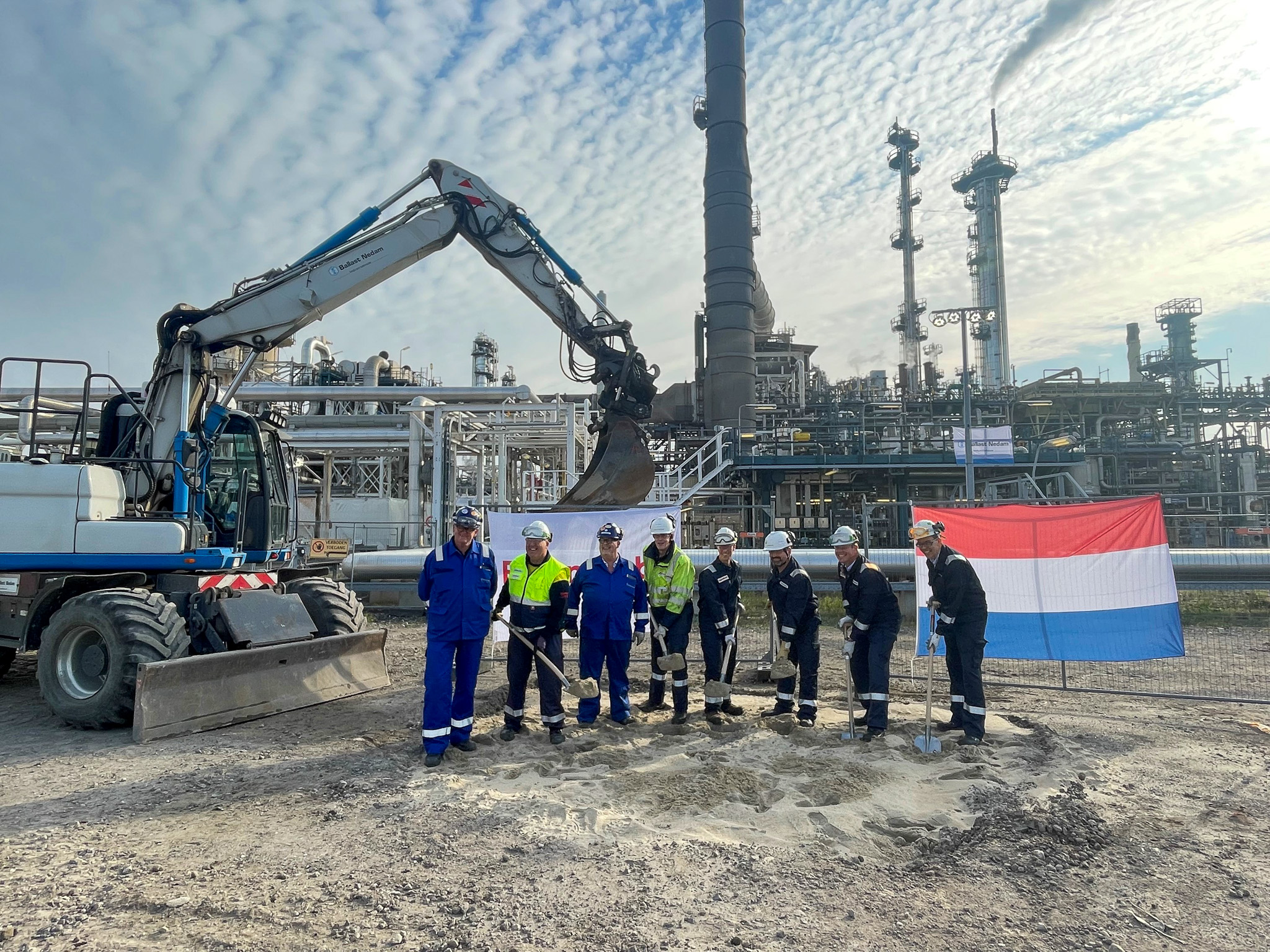
CFCPILOT4CCS is pushing the boundaries of industrial decarbonisation with an innovative pilot at ExxonMobil’s Rotterdam manufacturing site. This first-of-its-kind project will demonstrate carbonate fuel cell (CFC) technology to capture carbon dioxide from "lean" CO₂ streams, which are gas flows that contain relatively low concentrations of CO₂, making them traditionally difficult and expensive to treat. By concentrating these dilute emissions, the technology enables more efficient and lower-cost CO₂ capture in industrial settings. Unlike conventional methods that require additional energy input, CFCs can simultaneously capture CO₂ emissions while generating electricity, hydrogen, and heat, making them a potential cost-effective and efficient solution for decarbonising heavy industry.
"The two project’s partners, FuelCell Energy and ExxonMobil, believe that capturing carbon at the source is an efficient way to decarbonise the continent while keeping the competitiveness of the sector." said Micha Sprengers, Business Planner ExxonMobil Rotterdam and CFC Project Coordinator. "The Innovation Fund was instrumental in enabling this investment as the financial support helped us move forward with confidence."
Supported by a EUR 30.5 million grant from the Innovation Fund, the project aims to reduce CO₂ emissions by 46 000 tonnes over its 5-year operation: the equivalent of removing 6 970 cars from the road annually in the Netherlands (acea, 2023).
Redefining carbon capture for a cleaner industry
The project aims to gather performance and operability data from the CFCs in a commercial setting to evaluate their technical readiness for large-scale carbon capture applications. The pilot will focus on operating the system with live pretreated flue gas, module stacking and interconnection, and industrial process integration. The project will assess the technology's lifespan and robustness to typical operational fluctuations. If successful, ExxonMobil could roll out the technology across its manufacturing sites and create up to 600 direct jobs in Europe , including roles in engineering, manufacturing, and operations.
CFCPILOT4CCS has reached key milestones such as ensuring technical readiness through detailed engineering, receiving regulatory permits and finalising the site preparation. Procurement is on track, with all long-lead equipment ordered and contracts finalised. This enables the construction to move forward.
Developing a first-of-a-kind technology required sourcing highly specialised vendors, many of whom had limited experience with CFC technology. Identifying relevant vendors involved extensive research, supplier negotiations, and technical validations to secure the right expertise. Managing a team with diverse rspecialised profiles required strong coordination to keep the project on track.
The project expects to capture and store 62 000 tonnes of CO2 over its 5-years operation. The CO2 will be stored in a site developed by a separate project funded by the CEF-Energy programme:Porthos CO2 Transport Network. This project is part of the Project of Common Interest (PCI) CO2 TransPorts, which aims at capturing, transporting, and storing CO2 emissions from industries in the Port of Rotterdam area and other locations.
Next steps: bringing the pilot to life
The project officially began construction in October 2024, with key infrastructure and strategic connections in Rotterdam being developed for a launch in 2026. Most facility components will be pre-assembled off-site before final installation, ensuring efficient deployment. At FuelCell Energy, the first CFC module has been manufactured. The second module will follow, reinforcing scalability. Meanwhile, Esso Rotterdam is leading operational planning.
With these milestones achieved, CFCPILOT4CCS is advancing towards implementation, setting a new benchmark for industrial carbon capture.
About the Innovation Fund
The Innovation Fund, financed by EU Emissions Trading System revenues, is one of the world’s largest funding programmes for the demonstration of innovative low-carbon technologies. The Fund focuses on highly innovative clean technologies and big flagship projects with European added value that can bring significant greenhouse gas emission reductions.
Article published on 21 March 2025
- Start date
- 1 Apr 2023
- Project locations
- Netherlands
- EU contribution
- €30 497 000
